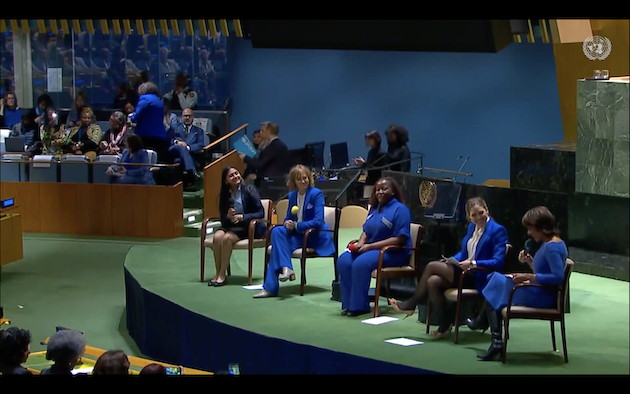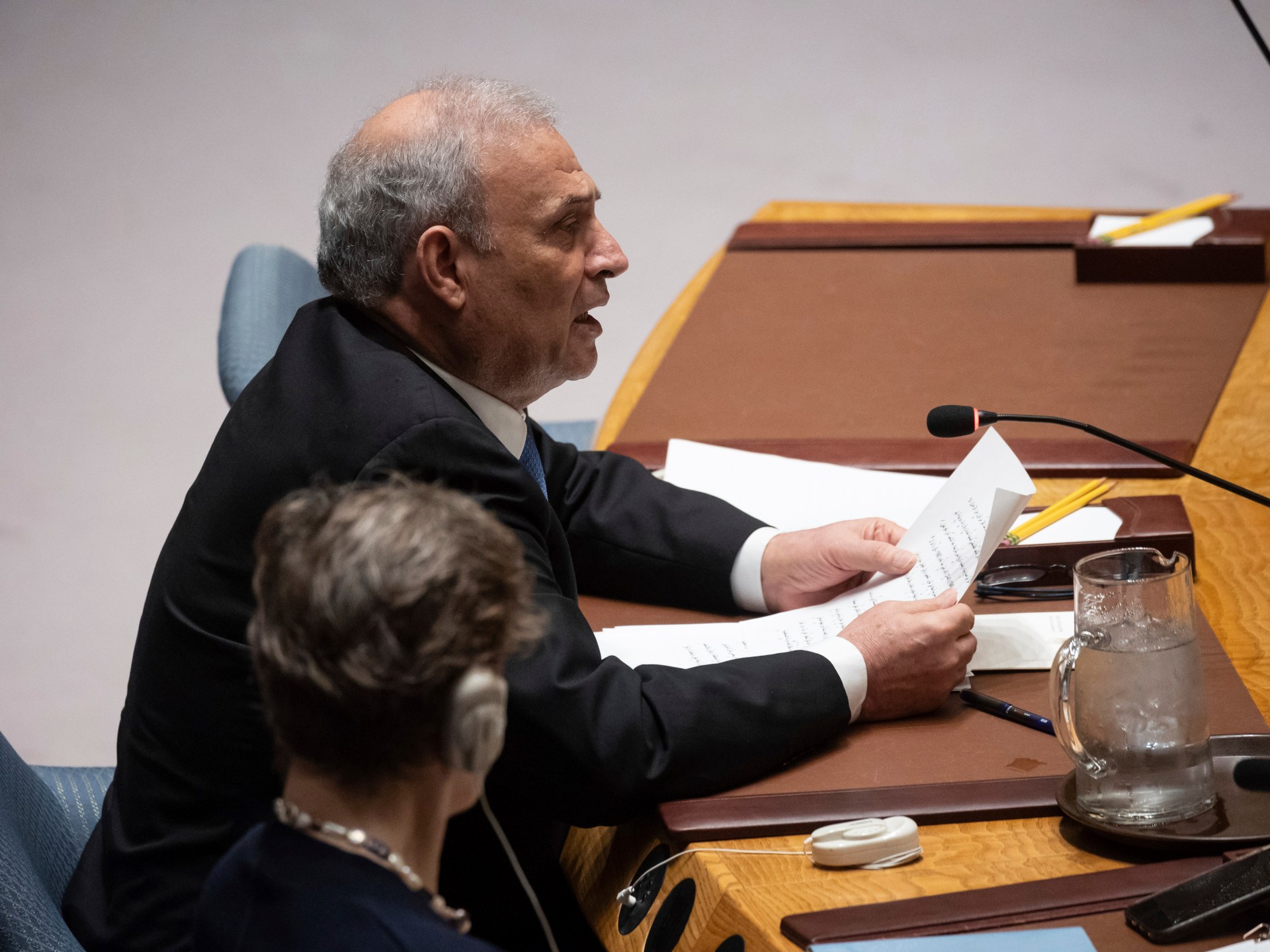Green Bills Over Blue Gold — Global Issues
MONTEVIDEO, Uruguay, Jun 19 (IPS) – Drinking water is running out in Uruguay — this headline got the small South American country onto international news. Prolonged drought has brought the reservoir and river that supply the capital Montevideo down to 10 per cent of their normal water level. Unless the rain comes, there is sufficient water only until mid-June, at best.
Paradoxically, Uruguay is located in a region that holds more than 30 per cent of the world’s freshwater reserves. So, there is groundwater. But the fact that drinking water is available only to those able to buy it in bottled form highlights rather different political priorities. Amidst the climate crisis, short-term economic interests have been prioritised over prevention, mitigation and adaptation.
Economic interests prevail
Water supply is not a new issue in Uruguay. As early as 2004, 65 per cent voted in favour of a referendum on a constitutional amendment to establish access to drinking water as a fundamental right. It also gave the state exclusive responsibility for water treatment and supply.
Experienced in direct democratic procedures, Uruguayans thus prevented the participation of French and Spanish companies in the public water utilities and a possible privatisation, as was the case in other countries in the region.

That is why outgoing President Tabaré Vasquez passed on construction plans for another reservoir to Luis Lacalle Pou’s newly elected government in 2020. The aim was to avoid foreseeable supply bottlenecks. But the reservoir was never built. Also, discussions on a transformation strategy for a development model that, due to climate change, has a foreseeable expiry date did not happen.
Instead, the new neoliberal government approved foreign investment projects that are extremely water-intensive and fed by groundwater wells. For example, in 2021, Google started the construction of a gigantic data centre, which requires 7 million litres of fresh water every day to cool the servers.
In 2022, an agreement was reached with a German firm on the production of green hydrogen in northern Uruguay, which requires 600,000 litres of fresh water a day. There was no parliamentary vote on either project and thus no democratic participation.
Despite the recent lack of rainfall, there has been no attempt to tap into the groundwater to obtain drinking water. Instead, since early May, estuary water from the Rio de la Plata has been mixed in with remaining reserves. As a result, drinking water now considerably exceeds the sodium and potassium levels laid down by the Health Ministry. And people only became aware of this because the water was now noticeably salty.
After contradictory messaging on whether tap water could be drunk, finally, the Ministry recommended that old people and invalids stick to bottled water. It remains to be seen how hospitals, schools and day-care facilities will obtain the drinking water they need.
When asked what the poor are supposed to do (10 per cent of the population live beneath the poverty line), the deputy chair of the state-owned water company said that people should give up Coca-Cola for water. Marie Antoinette sends her regards.
A government feeding lies
Trade and industry were the next to suffer from the problems of water quality. Can saltier water be used in certain production processes without damaging machinery? Can bakers raise bread prices to cover the cost of drinking water without suppressing demand, already hard hit by Covid-19?
As in Europe, Uruguayans are also grappling with high inflation, which reached double figures before stabilising at 9 per cent. But even this level is unlikely to be maintained. The government broke its promise to keep the price of bottled water under control.
In many places ‘Blue Gold’ is out of stock and, where it is available, priced the same as Coca-Cola. Now, there are plans afoot to import bottled water from neighbouring countries.
Despite being under increasing pressure, the government knows how to use the situation to its advantage. It feeds the neoliberal narrative that public companies are incompetent. What’s more, salty drinking water makes it easier for the government to gain acceptance of its ongoing negotiations on building a river-water desalination plant. The ‘Neptuno’ project is facing strong protests, highlighting its potential environmental damage, high costs and de facto partial privatisation of water as a resource.
But the problem is not new. Previous governments formed by the progressive coalition Frente Amplio also failed to focus consistently on transforming the development model. Although the energy matrix has been almost entirely converted to renewable energies in only a few years, soya cultivation and pasture lands, as well as eucalyptus plantations for cellulose production grew even under progressive rule.
The renovation of old pipelines was also delayed so that now 50 per cent of drinking water just seeps away. There are no incentives for more frugal private water use, either. Only now are radio commercials calling on people to refrain from washing their cars or watering their gardens have started to be broadcasted.
However, one thing was guaranteed during the 15 years of the Frente Amplio government: the state’s responsibility for water and other essential goods. Today, the citizens no longer even believe the waterworks with regard to the measured values of the tap water. The loss of trust in the state’s duty of care is enormous.
The effects of climate change on the water supply are also discernible in Europe. Just look at the crisis in Spain’s agricultural sector or the drying up of whole bodies of water from the Aral Sea to Lake Garda. Nevertheless, few people in Europe can imagine a day they might turn on the tap and no water comes out.
But the battle for the Blue Gold has long begun. Fresh water is not the gold of the future but of the present. And as with any resource allocation conflict, it needs political and legal regulation. This applies in particular to the governments and parliaments of the countries concerned. But criticising mismanagement in the Global South is pointless in isolation.
Climate change knows no borders. That’s why we need to challenge our own national and community policymakers on this issue. What signal do trade agreements send that reinforce Latin America’s role as a raw materials supplier?
How can food security be ensured while conserving water? What guidance, investments and technologies do the production countries need? And what incentives would facilitate change away from consumption and thus demand?
Global public goods such as fresh water need global protection and international regulation. Unless we think about and promote socio-ecological transformation in global terms, climate justice will remain a pipe dream and the rule of the market will dominate resource distribution. Our joy at sourcing green hydrogen from Uruguay in place of wind turbines down the road is thus likely to prove short-lived.
Dörte Wollrad heads the office of the Friedrich-Ebert-Stiftung (FES) in Uruguay. Previously, she led the foundation’s offices in Argentina and Paraguay.
Source: International Politics and Society (IPS), published by the Global and European Policy Unit of the Friedrich-Ebert-Stiftung, Hiroshimastrasse 28, D-10785 Berlin.
IPS UN Bureau
Follow @IPSNewsUNBureau
Follow IPS News UN Bureau on Instagram
© Inter Press Service (2023) — All Rights ReservedOriginal source: Inter Press Service
Check out our Latest News and Follow us at Facebook
Original Source




